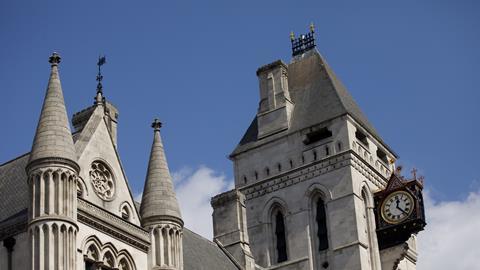Former clients of Charles Russell Speechlys have successfully appealed a costs order, after it was discovered that a litigator at another firm involved in their matter did not hold a current practising certificate.
Charles Russell Speechlys carried out work for Julia Mazur and Jerome Stuart, but the firm’s £54,263.50 bill went unpaid. Goldsmith Bowers Solicitors was instructed to recover the debt.
In Julia Mazur & Ors v Charles Russell Speechlys LLP, Mazur and Stuart took issue with the fact that the litigator, GBS head of commercial litigation Peter Middleton, did not hold a PC. A stay was ordered. Charles Russell Speechlys’ application to lift the stay was granted last December, and Mazur and Stuart were ordered to pay Charles Russell Speechly £10,653 for the costs of the application to lift the stay. They appealed.
Middleton’s involvement with proceedings ended in October 2024 and he was replaced by a qualified solicitor with a practising certificate. Robert Ashall, a director at GBS, self-reported to the Solicitors Regulation Authority in November 2024 in connection with Middleton’s employment. The SRA decided not to investigate the firm or Middleton.
Mr Justice Sheldon found Middleton was not entitled to conduct litigation under Ashall’s supervision. He said: ‘The person conducting litigation, even under supervision, must be authorised to do so, or fall within one of the exempt categories. In my judgment, this is the proper construction of the [Legal Services Act 2007]. Accordingly, Mr Middleton was not entitled to conduct litigation merely because he was an employee of a person (here GBS) that was authorised to carry out the reserved legal activity of conducting litigation.
‘The learned judge’s reliance on the confirmation from the SRA that “Mr. Middleton had authority to conduct litigation under the supervision of Mr. Ashall” was also an error.’
Read more
Mr Justice Sheldon did not make any findings relating to Middleton, adding there would be a ‘real unfairness…given that he is not a party to the present appeal or to the proceedings below’. He also declined to refer Middleton or Ashall to the SRA for further investigation.
The judge said the award against Mazur and Stuart ‘cannot stand’. It also fell to be quashed 'because the sum awarded exceeded by some considerable margin the costs that the learned judge was entitled to award given that this case was allocated to the Intermediate Track.
‘The learned judge made an error in ordering the appellants to pay the costs of the application to lift the stay (which was essentially the costs of counsel) in the sum of £10,653. Rather, the only award that His Honour Judge Simpkiss could have made pursuant to the regime for Intermediate Track cases would have been £333 plus the appropriate court fee of £303.’
Varying the order to one of no order as to costs, the judge said: ‘This seems to me to reflect the justice of the matter below. On the one hand, the learned judge was right to lift the stay given that Mr Middleton was no longer involved in the proceedings. On the other hand, the argument made by the respondent as to Mr Middleton’s earlier entitlement to be involved in the proceedings was erroneous.’



























